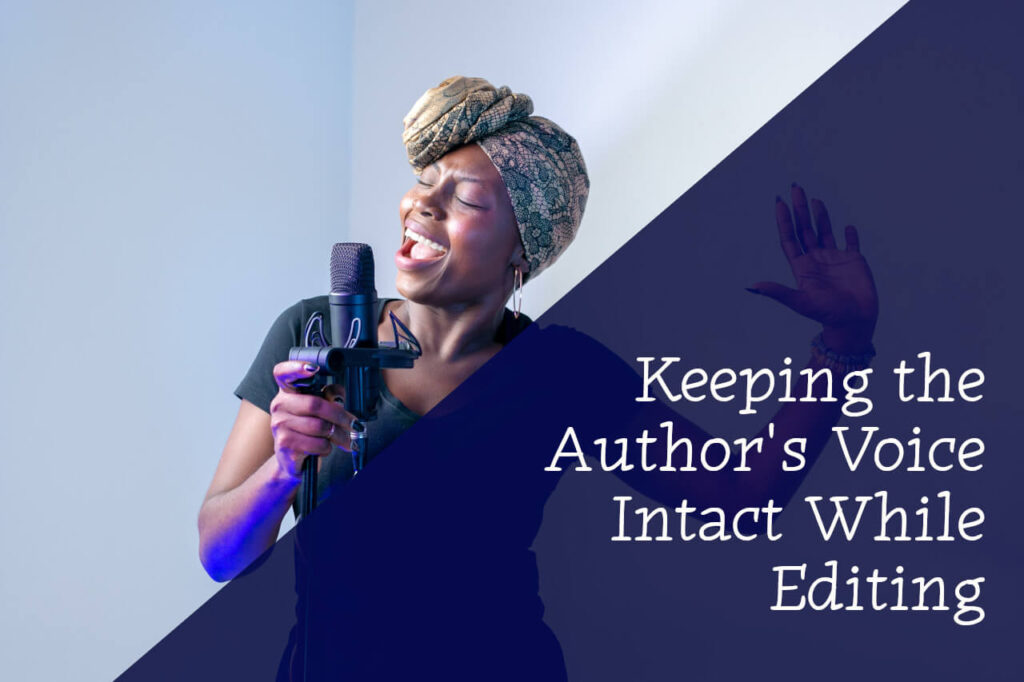Just as every person has their own unique speaking voice, authors have their own writing voice. Their writing voice (or author voice) is distinct in the words they choose and the way they put together sentences and paragraphs.

Some writers worry an editor will change or bulldoze their author voice. But a good editor wouldn’t do that.
A good editor skulks in the background and quietly places your glass onto a coaster when you forget. Or leaves notes in your lunch box telling you you’re great but don’t forget to eat your vegetables.
I guess what I’m saying is a good editor is kind of like your mum or dad (assuming your parents worried about coasters and left you lunch notes).
You see, your parents spend years laying the foundation. They teach you right from wrong, take you to do fun things like a day at the beach, and make you do things for your own good like go to the dentist. Then you become an adult and you’re on your own.
Your parents don’t abandon you but they do step back, no longer telling you what to do but instead offering advice and support when necessary.
A good editor is like that too. If they blog, teach workshops, or hold seminars, that’s their way of laying the foundation. Then you become a novel writing adult seeking a good editor. And the good editor offers advice and support. They suggest ways to improve your writing and explain why the change may be of benefit to your story.
Occasionally the good editor will rewrite a sentence, paragraph, or scene, but they will try to mimic your voice while doing so. To do this, editors pay attention to how you use language and make notes about your style choices. They will be sure to preserve the original version so you may revert back to it if you don’t like their suggestions. And, again, they will explain why they think the rewrite is necessary.
A good editor is like a writing parent, all they want is to see you grow, improve, and succeed. And of course to help you tell a great story.

1 thought on “How to Maintain Author Voice While Editing”